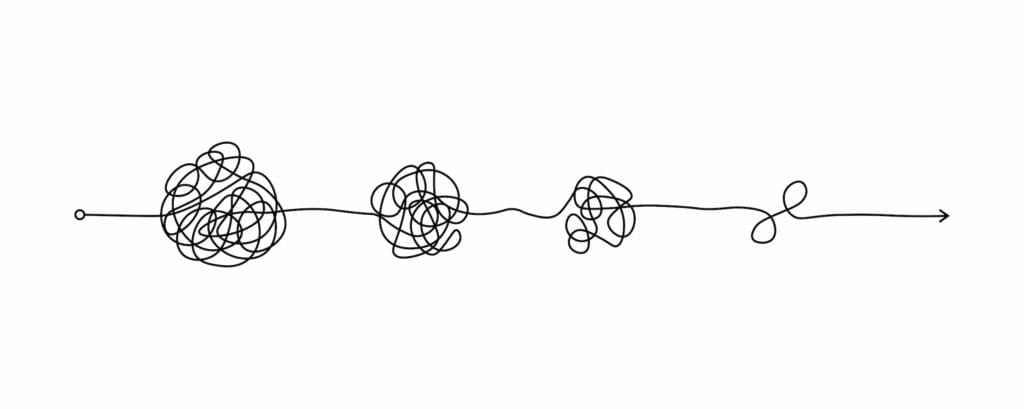Just as a hummingbird exhibits an astonishing level of hyper-awareness in its environment, constantly attuned to the slightest changes in its surroundings as it flits from flower to flower, so too can individuals develop a similar level of heightened awareness. This can be in the context of their personal lives, professional environments, or learning experiences. Being hyper-aware, like a hummingbird, means having the ability to quickly pick up on cues, adapt to new situations, and make rapid decisions, all while maintaining balance and agility. But what happens when you become too aware?
Being aware of oneself and one’s surroundings is crucial for survival, development, and meaningful interactions. However, like many things in life, there is a point where too much awareness can become detrimental. This is particularly true when it comes to self-awareness and social awareness, where excess can lead to inauthentic behavior, perceived manipulativeness, or even self-serving tendencies. The question then arises: how do we navigate this intricate balance, and can awareness really go too far?
At its core, self-awareness involves understanding one’s own emotions, strengths, weaknesses, drives, values, and goals. It’s an essential aspect of emotional intelligence and key to leading a balanced life. However, when this self-awareness tilts towards hyperawareness, it can cause an overanalysis of one’s own actions and emotions, leading to inauthentic behavior.
Hyperaware individuals might feel a constant need to monitor, evaluate, and adjust their behavior to fit into social norms or expectations. This constant self-surveillance can result in an exhausting effort to “perform” rather than “be”. Moreover, the authentic self can get lost in this process as individuals increasingly conform to societal expectations rather than their own values and beliefs. This loss of authenticity is often palpable to others, leading to perceptions of insincerity or manipulativeness.
Similarly, social awareness, which involves understanding and responding to the needs and emotions of others, can also go awry. In an optimal amount, social awareness allows individuals to navigate their social environments effectively, showing empathy and understanding. However, when amplified to hyperawareness, individuals may become overly attuned to the emotions, reactions, and expectations of others.
This heightened sensitivity can push individuals to adapt their behavior excessively to please or influence others, potentially coming across as manipulative. Hyperaware individuals might also use their understanding of others’ emotions to advance their own interests, leading to self-serving behavior. The risk here is the potential for relationships to become transactional, rather than genuine and heartfelt.
So, what is the balance?
How do we harness the power of awareness without falling into the trap of hyperawareness?
The answer lies in maintaining authenticity. Authenticity requires acknowledging and acting in line with our values, beliefs, and desires. Being authentic does not mean disregarding the feelings or needs of others, but it does mean not losing ourselves in the process of trying to meet those needs.
A key step is to develop a robust sense of self. This involves knowing one’s values, beliefs, and desires and being comfortable with them. It also means being able to express these authentically, even when they might not align with societal expectations or the immediate desires of others.
Next, we must practice self-compassion. Hyperawareness often springs from a fear of judgment or rejection. By being compassionate with ourselves, we can acknowledge that we are human, imperfect and that it’s okay to make mistakes. This acceptance can help alleviate the need for constant self-surveillance and allow for more authentic expression.
When it comes to social awareness, the balance involves practicing empathy without losing oneself. This means being able to understand and respond to the emotions and needs of others, but not at the cost of our own well-being or values. Empathy should be a bridge for connection, not a tool for manipulation.
Awareness can indeed go too far, tipping into hyperawareness and leading to inauthentic, potentially manipulative, or self-serving behavior. However, by fostering authenticity, developing a robust sense of self, practicing self-compassion, and balancing empathy, we can harness the benefits of awareness without falling into these pitfalls. It’s a delicate balance, but not an impossible one to strike.
Another Way to Maintain Balance
Mindfulness involves being fully present in the moment, conscious of our thoughts, feelings, and actions, but without judgment. By practicing mindfulness, we can develop a healthy form of self-awareness that allows us to be in touch with our emotions and responses without becoming overly critical or anxious about them.
For example, consider a situation where you made a mistake at work. A hyperaware individual might excessively worry about this mistake, imagining the worst possible consequences, replaying the scenario over and over, and planning meticulously to avoid such an error in the future. This could lead to a rigid, inauthentic mode of operation, fueled by fear rather than genuine learning.
On the other hand, a mindful individual would also acknowledge the mistake, but without the harsh self-judgment. They would recognize the error, understand its implications, and learn from it without becoming overly anxious or critical. This approach allows for authentic growth and change without the fear-driven rigidity that hyperawareness can induce.
The same principle applies to social awareness. Being mindful in our interactions with others allows us to recognize and respond to their needs and emotions without becoming overly attuned or adaptive. It helps maintain the delicate balance between empathy and authenticity, allowing us to connect genuinely with others without losing ourselves in the process.
Lastly, let’s not forget the importance of setting healthy boundaries. Hyperaware individuals, in their quest to meet the needs of others, often overlook their own needs. By setting and maintaining healthy boundaries, we can ensure that our desire to help or please others don’t lead to self-neglect or inauthentic behavior.
It’s important to remember that boundaries aren’t barriers to connection, but rather the groundwork for healthy, authentic interactions. They help us understand where we end and where others begin, allowing for mutual respect and understanding.
In essence, while hyperawareness can lead to inauthenticity and perceived manipulativeness, it is not an inevitable outcome of heightened awareness. By practicing authenticity, mindfulness, self-compassion, and setting healthy boundaries, we can navigate this complex landscape effectively.
Awareness, when balanced, can be a powerful tool for personal growth and meaningful connections. It’s all about striking the right balance and maintaining our authenticity in the process. The challenge is to be aware enough to navigate the world effectively, but not so aware that we lose our genuine selves in the process. And that’s a challenge worth embracing.
AI Advisory Group is one of the most supportive executive leadership companies for small and medium size organizations. The information we provide in this article may contain both opinions, facts, statistics, and other source references. You should never make a decision solely based off of the information provided. Please feel free to contact us here for any questions, concerns, or additional information.





